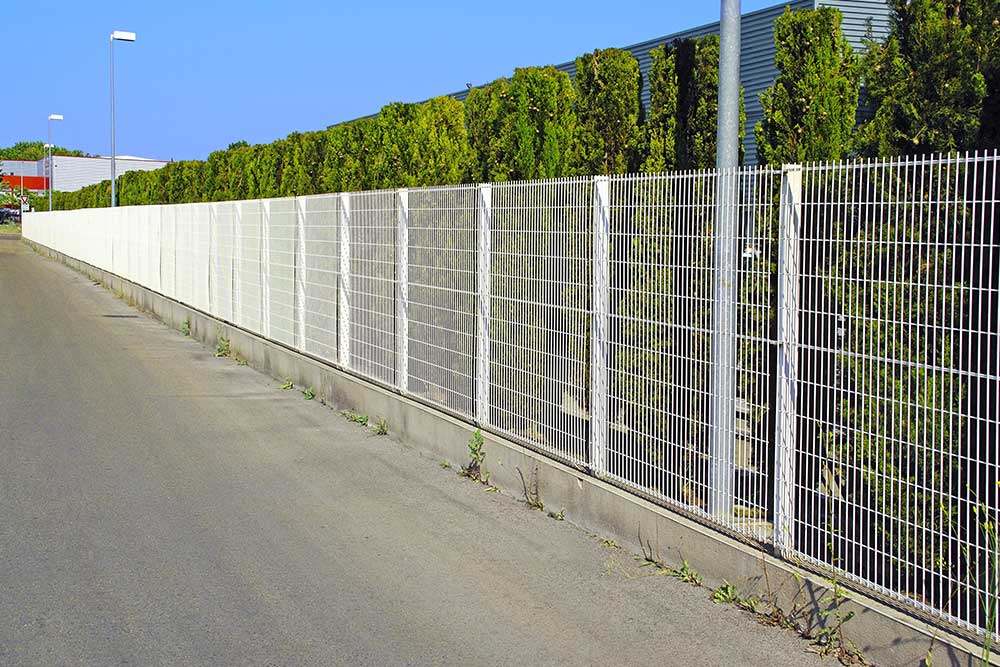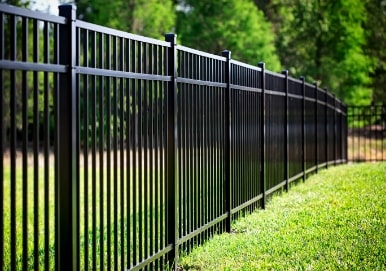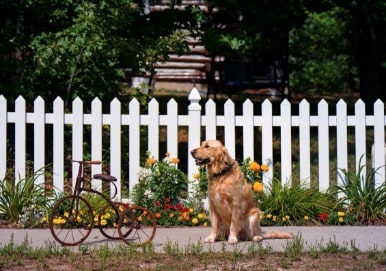When planning a commercial fence installation, there are many factors to consider to make sure the process goes smoothly. A solid, well-installed fence is not only vital for security but also plays a role in enhancing the overall look of your business.
Good Neighbor Fence knows that every business is unique. We’re here to guide you through the steps to help you make the best choice for your commercial fence.
Here are five valuable tips for your upcoming commercial fence installation in Moseley, VA.

Choose the Right Type of Commercial Fence
Choosing the right type of fence for your commercial property is the first and most important decision you’ll make during the installation process. Your fence needs to meet your specific needs and these needs can be improving security, offering privacy, or enhancing the appearance of your business.
Chain link fences are a popular choice for those who prioritize security at an affordable price. They’re durable, low-maintenance, and effective at clearly defining boundaries.
If privacy is a bigger concern, you might want to consider solid wood, composite or vinyl fences. These materials offer a more complete barrier, shielding your property from prying eyes and reducing noise.
Plan the Fence Layout and Design
Before starting your commercial fence installation, planning your layout and design is important for a smooth process.
Begin by clearly defining the boundaries where the fence will go. This involves not just marking the perimeter of your property but also considering practical elements such as gate locations, corners, and any access points you may need for equipment, deliveries, or foot traffic.
The design should factor in these elements, so that the fence serves both its functional purpose and its aesthetic goals. Accurate measurements are paramount, as they prevent errors in material ordering and installation. If your property has uneven or sloping terrain, your fence design should accommodate these conditions.
Fences on slopes may require a stepped installation to maintain an even appearance and functionality. Furthermore, remember to consult local zoning codes, as there may be restrictions on fence height, materials, or placement in your area.
Prepare the Ground Properly
Once the planning stage is complete, proper ground preparation is necessary to make sure your fence lasts over time. Start by clearing the area where the fence will be installed, removing any debris, large rocks, or trees that could interfere with the posts. It’s also important to check the condition of the soil in the area.
If the ground is too soft or sandy, the posts may not hold properly, and extra care will need to be taken to secure them. Digging deeper holes for posts or using stabilizing materials like gravel can help the fence remain strong and intact for years to come. Clear and level ground is a fundamental step for a successful installation.
Install Fence Posts Properly
The foundation of any fence lies in the posts. The strength and stability of the entire structure depend on how well the posts are installed. Each post should be placed deep enough into the ground to resist shifting or leaning over time.
As a general guideline, at least one-third of each post’s length should be buried underground. It’s important to keep the spacing between the posts consistent, generally about 6 to 8 feet apart, depending on the type of fence and material used.
After placing the posts in their holes, backfill with soil or gravel to make sure they are properly set. For added durability, concrete can be poured around the posts for a more stable structure. Proper post installation is one of the most important steps in commercial fence construction.
Maintain Your Commercial Fence Regularly
Once your commercial fence is in place, regular maintenance is needed to keep it in top shape. Over time, fences may suffer from wear and tear caused by weather conditions, animals, or general use. It’s important to perform periodic inspections for any damage. For instance, if you have a wood fence, look for signs of rot or cracks in the boards.
Chain link fences might show rust over time, so cleaning and re-coating may be necessary. Keeping an eye out for loose posts or sagging sections will help you address minor issues before they turn into major problems. Maintaining your fence regularly helps it continue to serve its purpose for a longer period, protects your property, and keeps your business secure.
Our experts at Good Neighbor Fence specialize in commercial fence installation and offer a variety of high-quality fencing options designed to meet your business’s needs. Our team is dedicated to delivering excellent craftsmanship and exceptional customer service, so your fence will enhance the safety and appearance of your property.
Contact us today for more details.





